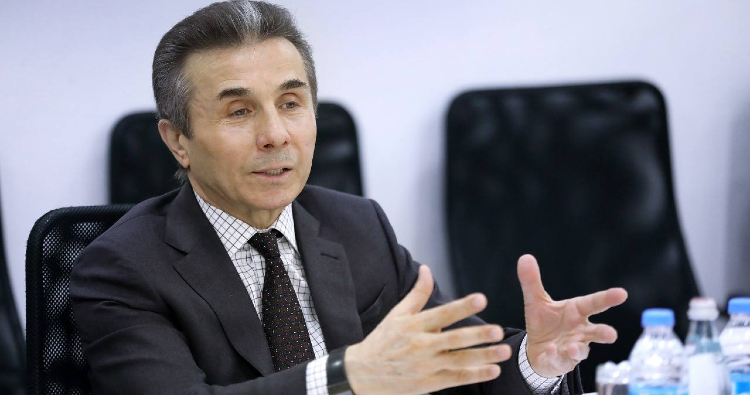Ruling party Honorary Chair says country will become EU member in 2030

Ivanishvili added a “free, independent, and sovereign Georgia [that is] a member of the EU, [as well as] a united and whole Georgia” was a “Georgian dream”. Photo: Georgian Dream
Bidzina Ivanishvili, the founder and Honorary Chair of the ruling Georgian Dream party and the former Prime Minister of the country, on Monday said the country would become a member of the European Union in 2030.
Ivanishvili told a rally in Tbilisi in support of the controversial bill on transparency of foreign influence Georgia was a “clear leader” among EU candidate countries in democracy, human rights, strength of institutions and lack of corruption, adding the country's economy was growing “at the fastest rate” among all candidate countries.
I promise you that we will overcome all obstacles, strengthen our sovereignty, maintain peace, strengthen the Georgian economy, and become a member of the European Union in 2030” he said.
We are a unique nation with a unique history, traditions and identity. It is with these unique national traditions and identity that we should join the common European family, because only in such a case can the European Union have real value for Georgia and vice versa”, he added.

Photo: Georgian Dream
He noted the success of the country’s national football team in their first-ever qualification for the playoffs of the 2024 European Football Championship had “strengthened our belief that dreams can come true”.
A 30-year dream came true for Georgian fans and the Georgian national team qualified for the European Championship for the first time in history. I believe that this great success is the first step on the way to realising the dreams of our country”, the party official noted.
Ivanishvili added a “free, independent, and sovereign Georgia [that is] a member of the EU, [as well as] a united and whole Georgia” was a “Georgian dream”.
The rally was held on Monday in support of the bill that calls for the registration of non-commercial legal entities and media outlets in the country as “pursuing the interests of a foreign power” if they derive more than 20 percent of their funding from abroad,, and has been met by public protests and criticism from some of Georgia’s foreign partners.
 Tweet
Tweet  Share
Share